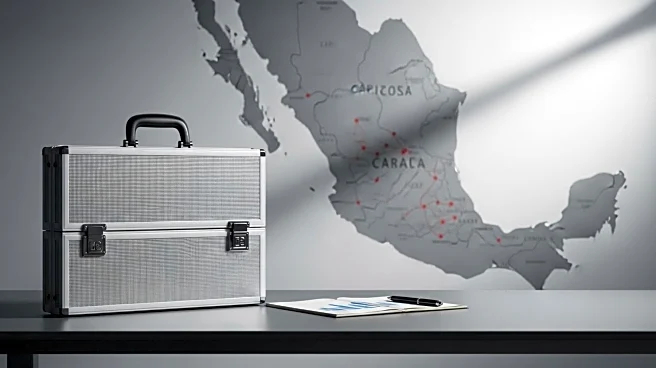What's Happening?
The enforcement landscape in Mexico has shifted, with U.S. agencies treating cartel-linked activity as a national security threat. This change demands immediate attention from multinational executives and compliance officers, as routine business practices in Mexico may now be classified as material support for terrorist organizations. Companies face increased scrutiny and potential legal exposure under U.S. national security laws, requiring comprehensive risk assessments and enhanced due diligence.
Why It's Important?
The evolving enforcement priorities in Mexico pose significant risks for U.S. companies operating in the region. The reclassification of business activities as support for terrorist organizations could lead to criminal charges and financial penalties. Companies must adapt their compliance strategies to mitigate these risks and ensure business continuity. The situation underscores the importance of understanding local dynamics and maintaining robust compliance frameworks to navigate complex regulatory environments.
What's Next?
Companies operating in Mexico should conduct thorough risk assessments and enhance their due diligence procedures to address cartel-related risks. Training and monitoring of third-party relationships are essential to prevent exposure to illegal activities. The DOJ's updated policies offer a path for voluntary disclosure, providing a strategic option for mitigating enforcement risks. Businesses must remain vigilant and proactive in managing compliance challenges in Mexico.
Beyond the Headlines
The enforcement shift in Mexico highlights broader issues of governance and security in the region, with implications for international business operations. The increased focus on cartel activity reflects the growing intersection of national security and economic interests. Companies must navigate these complexities while balancing compliance obligations and business objectives, emphasizing the need for strategic risk management in high-risk jurisdictions.










